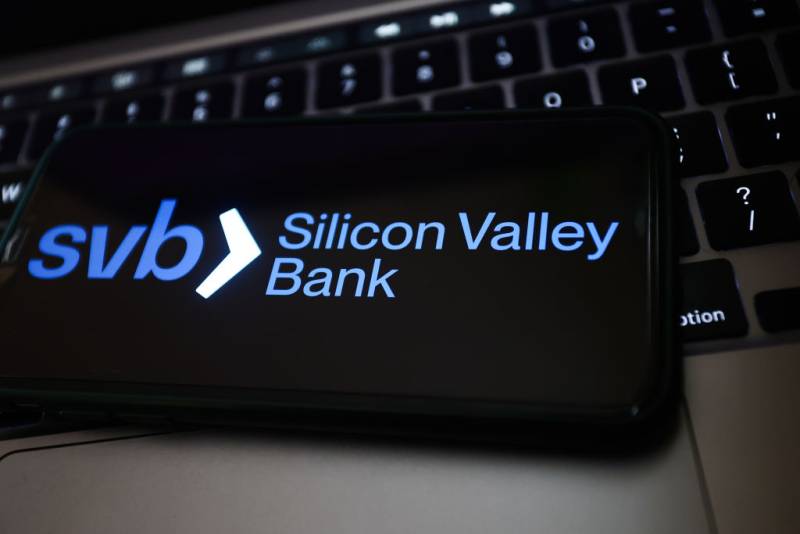Hersh Shefrin, behavioral economist at Santa Clara University, says the psychology underpinning this financial turning point can’t be ignored.
“The most important part of the story is panic,” he said.
Despite the federal government’s measures on Monday that were meant to alleviate customers’ fears, many bank stocks, including those of First Republic, a regional bank based in San Francisco, tanked. The question is whether these ripple effects will last — especially when it comes to the trust between tech start-ups, which drive the Bay Area economy, and their financial institutions.
KQED’s Brian Watt discussed with Shefrin the role psychology played in the Silicon Valley Bank collapse.
This interview has been edited for length and clarity.
On how Shefrin understands the latest bank collapse
We know that bank runs are simply part and parcel of the banking industry. We had thought that we had it pretty much under control: the establishment of the FDIC, Federal Deposit Insurance Corporation, that basically insures deposits up to $250,000.
What makes Silicon Valley Bank different from some of the other regional banks that are in trouble is that most of their deposits are too large to fall under the $250,000 limit. They’re just outsized. And that’s because the depositors are corporations rather than individuals who need large corporate checking balances. So if you’re a financial institution in that situation, you need to be more prudent than the other large commercial banks that cater to individuals. I think what you saw at Silicon Valley Bank was weakness in terms of risk management for psychological reasons that had to do with overconfidence on the part of the management leaders’ leadership and Silicon Valley Bank.
It was a breakdown in confidence and trust that led to a mass reaction on the part of depositors as they pulled out. And it’s that psychological aspect. Primitive fight or flight is really what you had take over last week on the part of depositors. And so it was that combination psychology on both sides.
On how a financial institution can get overconfident, even after what the tech industry has experienced
It’s related to personality and it’s also related to the culture of the environment. So I would say Silicon Valley Bank executives were not atypical of an overconfident culture within Silicon Valley itself. And I want to be clear to say that this is a double-edged sword. You need to have a little overconfidence and a little excessive optimism to do great things. And so having that combination of mild excess has fueled innovation and creativity within the Valley. It’s when you get too much of a good thing that you wind up in trouble.

